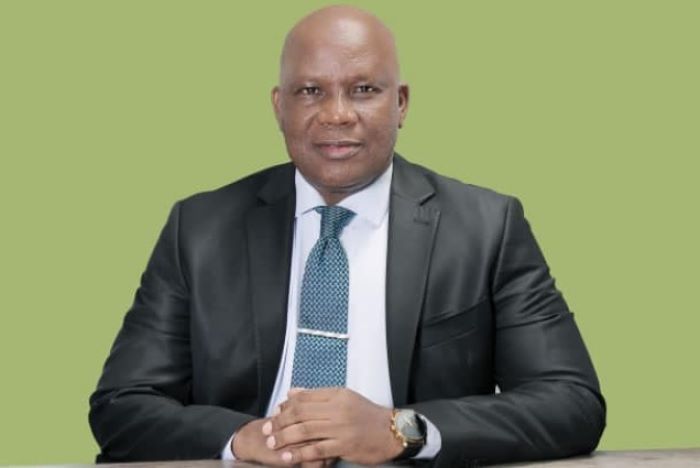BRAIN DRAIN: Lecturers Leaving Nigeria In Droves, As Their Shortage Hits Universities

The Japa syndrome has hit Nigerian Universities as they are battling a severe shortage of staff.
Thousands of lecturers are reportedly leaving the tertiary institutions to seek greener pastures in foreign lands amid the high number of retirements at the varsities.
The Academic Staff Union of Universities (ASUU) branches in separate interviews with The PUNCH on Sunday confirmed this, adding that the shortage was due to the surge in the exit of the lecturers out of Nigeria and the concerns around the Integrated Personnel and Payroll Information System.
ASUU at the Usmanu Danfodiyo University, Sokoto, said about 100 lecturers had left the university, while the union at the Federal University, Gusau, Zamfara, disclosed that the institution was in need of about 1,000 lecturers to fill the vacancies created by those who had left.
The union at the Federal University of Agriculture, Abeokuta, Ogun State said over 350 academic vacancies were available at the institution, while 27 lecturers had left two faculties at the University of Lagos, as 100 workers at the University of Uyo travelled out of the country.
The union disclosed that about 500 academic vacancies existed at the University of Ilorin in Kwara State, while both academic and non-academic staff of the Olusegun Agagu University of Science and Technology were leaving the country.
The Chairman, Olusegun Agagu University of Science and Technology, Okitipupa, Ondo State, Dr. Rotimi Olorunsola, said many of the staff of the institution, both academic and non-academic, had left the university.
Japa in varsities
Olorunsola said, “Yes, some have japa (travelled out of the country), both the academic staff and non-academic.”
The Head of the Media and Protocol, Adekunle Ajasin University, Akungba Akoko, Mr Victor Akinpelumi, confirmed that many workers of the institution had moved out of the institution.
“It is true many workers, both academic and non-academic, have left the university, but as I am now, I can’t give a specific number. I can confirm that many workers of the university have gone,” he stated.
The Chairman of ASUU, University of Benin, Dr Ray Chikogu, said the shortage of staff in UNIBEN and other universities had been a problem that existed for a long time due to the embargo on employment by the Federal Government.
He said this constituted undue interference by the government in the running of the universities, especially as it affected the recruitment and promotion of staff.
He said, “The teaching staff department is grossly understaffed. For a very long time, academic staff have been overburdened with work in the University of Benin and many other universities in the country.
“It has been a problem for a number of years now because of the embargo on employment in federal universities and the process of recruitment of staff is a very cumbersome one. The university has to obtain permission from the head of service through the accountant-general’s office.
“This is interference by the Federal Government on the internal affairs of the school. What should have been handled by university senates and councils has now been centralised to the point that everything has been muddled up in the university system. It is a very sad situation.
“Many are retiring and they are not being replaced and due to the unfavourable condition much academic staff work under, they have left their jobs and travelled abroad to seek greener pastures, adding to the big problem of brain drain, which is taking its toll on the university system and nothing is being done about it. It appears that the Federal Government is deliberately suffocating the system for reasons best known to them.”
Bureaucratic bottlenecks
The ASUU Chairman at the Federal University of Kashere, Gombe State, Dr Shehu El-rasheed, said a lot of vacancies existed in the varsity due to bureaucratic bottlenecks.
He said, “A lot of vacancies exist but filling the vacancies has become very difficult due to the tough bureaucratic bottlenecks. A vice-chancellor needs to get clearance from about seven Federal Government agencies and parastatals before a single staffer is recruited.
“Senior professors are retiring and no replacement. In FUK, academic staff are leaving in numbers to countries such Malaysia, Oman, New Zealand, and the US.”
El-Rasheed noted that inadequate academic staff in FUK could be associated with inadequate funding, “by the Federal Government and bureaucratic bottlenecks brought by IPPIS; poor remuneration and harsh economic conditions.”
IPP was introduced by the Federal Government a few years ago as part of measures to solve the problem of ghost workers and civil servants who earned multiple salaries.
However, a lot of workers, particularly those in universities, are not comfortable with the initiative, as it does not enable the institutions to employ workers even when such universities are highly understaffed.
The management of the Obafemi Awolowo University and the leadership of ASUU in the institution, while speaking in separate interviews, said there was a shortage of staff members in the university.
The Chairman of the OAU ASUU, Prof Tony Odiwe, decried the poor treatment of academic staff members and demanded a better working environment for the lecturers.
He said, “The government doesn’t care about the system, treating us as if we are slaves, terrible conditions of service, no motivation, and poor facilities. In addition to this, retired members are not being replaced, we are extremely overworked.”
On the shortage of lecturers, Odiwe said, “Our members have gone and many are still planning to leave, especially the younger ones in the system.






